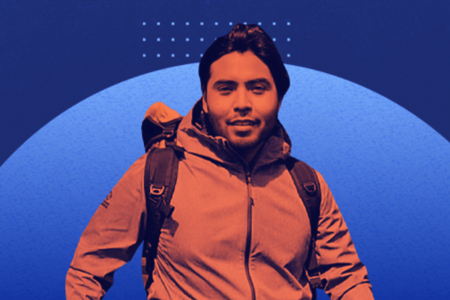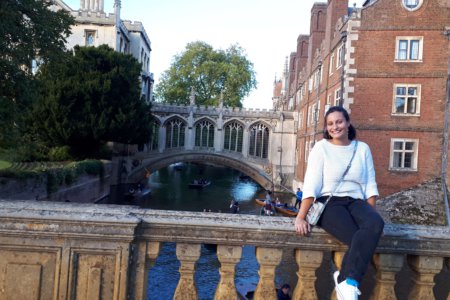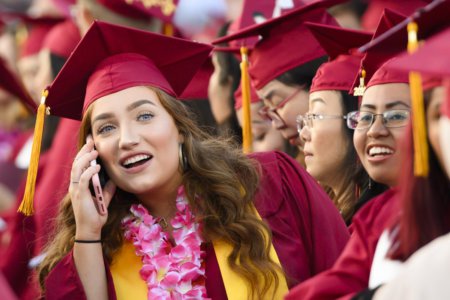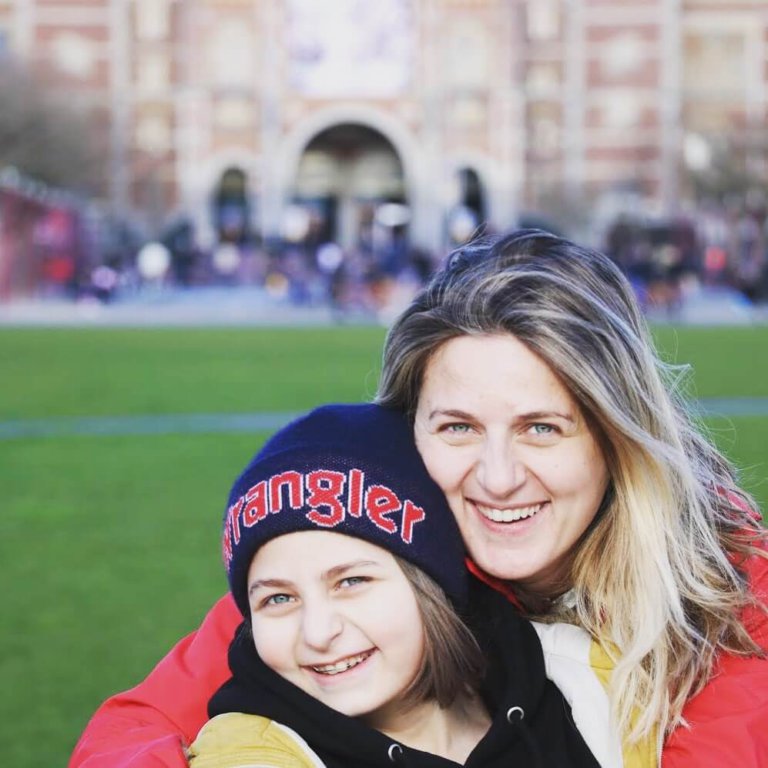
Many mothers are forced to choose between passion and motherhood. Gvantsa Kikalishvili, a journalist in Georgie, was faced with this dilemma in 2019, when she was contemplating deepening her academic knowledge on art management at the Erasmus Rotterdam University. In the end, she chose to pursue her dream even though it meant leaving her daughter behind for a year.
Juggling a Master in Cultural Management at a highly-ranked international research institution in the Netherlands and caring for her family was no easy feat. Kikalishvili grappled with time differences, missed life events and the guilt of being so far away from her daughter. She also left behind a career and a steady income. It was one challenge after another, but with fierce determination, she completed her degree and graduated from Erasmus Rotterdam University last year.
Today, she’s an art entrepreneur, founder of “Art Inception Georgia,” and a reminder to all of us that while gender roles are not the most sympathetic to women, they should not cause us to shy away from getting what we want. Below we talk to her about her master’s degree, Erasmus Rotterdam University and how she juggled it all:
What did you like most about the Netherlands?
While living in Rotterdam and watching Dutch people in their everyday life, I could sense the attitude that everything is possible. Their discipline, dedication and attitude towards their jobs and families was a big inspiration for me.
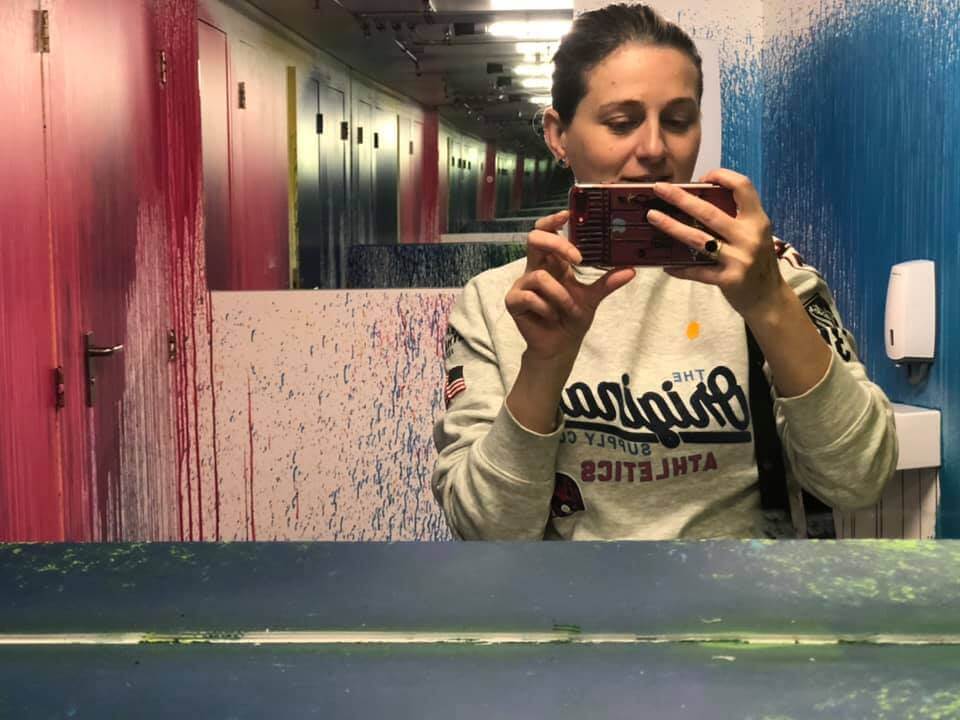
Kikalishvili graduated from Erasmus Rotterdam University last year. Source: Gvantsa Kikalishvili
Tell us more about your programme at Erasmus Rotterdam University.
I studied cultural management at the School of History, Culture and Communication at Erasmus Rotterdam University for my second master’s. The whole programme was for one year. After living in Rotterdam for one year, I had to move back to Georgia because of the pandemic.
What were some of the challenges you faced while being away from your family?
It was definitely a challenge to leave the family to go study and it also was a challenge for them. I have a husband and, at that time, my daughter was 10 years old, so it was hard for her to understand why I left her for so long. We all had to adjust to a new lifestyle, calling via WhatsApp.
The main challenge was the time difference and my busy schedule. I spent the majority of my time in the library so we missed a lot of opportunities to speak to one another. On the other hand, I left my family so I had this guilty feeling from it. Being a mother long-distance was not easy as I had thought. Daily small tasks were quite distracting for me during my studies. It wasn’t easy, but we did it!
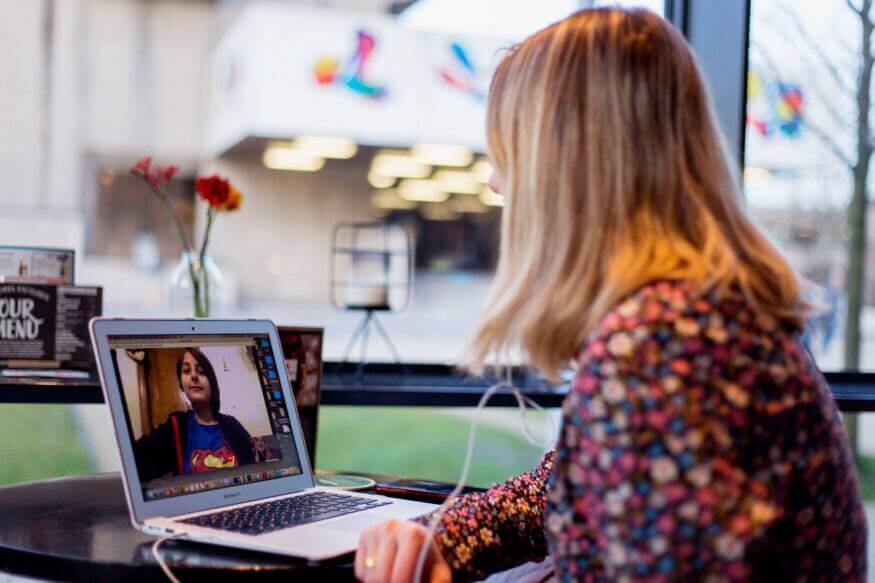
Kikalishvili had to make do with video calls to stay close to her daughter. Source: Gvantsa Kikalishvili
What’s one thing (apart from your family) that you missed, and how did you substitute it?
Frankly, I was missing my income. When I went to the Netherlands, I quit both of my jobs in Georgia so I had a very limited budget. I missed good coffee and shopping. My solution was learning to make a good latte.
When I got good marks or had a great presentation, I rewarded myself with coffee, and used shopping as a reward for big achievements at uni like passing exams. It was an experience I will never forget: managing a limited budget and staying positive throughout.
What are some memories you can share with us from the Netherlands?
Spending Friday evening at Witte de Withstraat — the busiest street full of restaurants and bars in the Netherlands — meeting new people, introducing my country and culture. I was attending art walks on Sundays with different people, having lunch with them and exploring the city of Rotterdam.
However, the most memorable experience was when I visited the Rotterdam Art Museum and Artistic Production Centre. The toilet was painted and decorated with contemporary artists. I strongly advise you to check this amazing artwork for yourself.
How are you using the skills you acquired from your master’s at Erasmus Rotterdam University?
This master’s was a change-maker in my career. The knowledge I got and the life experience I had helped me grow as a person and contributed to my self-confidence. After coming back to Tbilisi, I decided to become an art entrepreneur — following my life dream — and make art part of our daily life.
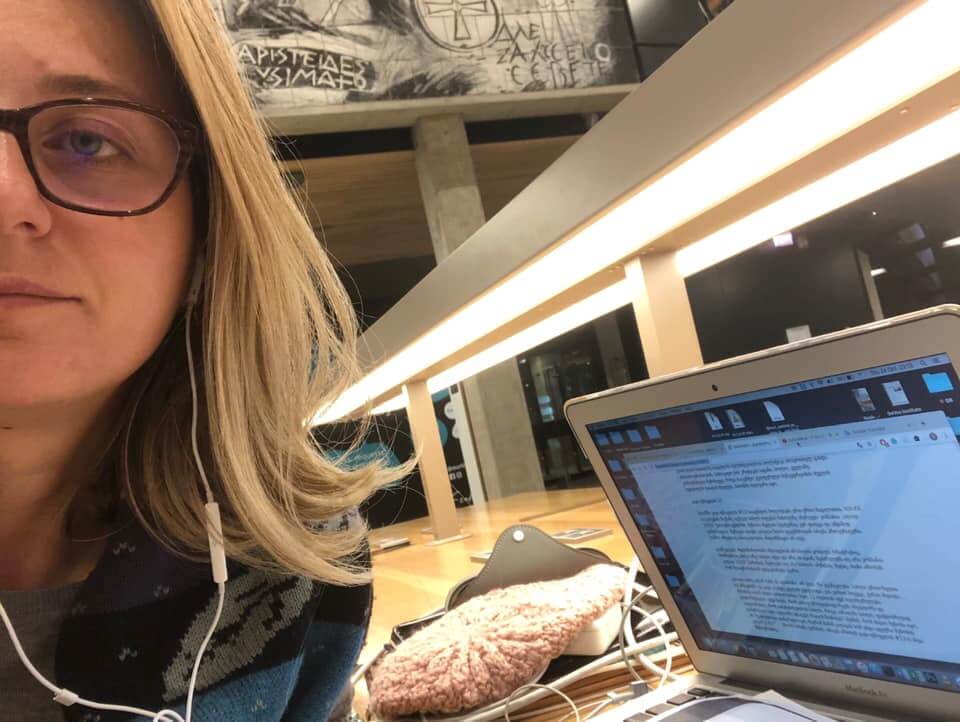
Now she holds a master’s in cultural management and has co-founded a successful art company — a reminder for women to reach for what they want. Source: Gvantsa Kikalishvili
With this aim I established the first art communication platform — Art Inception Georgia — which is a mediator between the artist community and society. What we do is work on commercialisation and internationalisation of the sector and try to present Georgia artists to the world. We also provide daily information about international funds and assist them with proposal writing. You can check out our Facebook and Instagram.
I am sure that without my experience abroad in the Netherlands, I would not have accomplished all of this. This experience changed my attitude, I now believe and trust in myself.
Let’s talk about food. Tell us about your most and least favourite food you’ve tried while studying abroad.
I least like potato dishes, but my favourite food is croquette. I also enjoyed sandwiches because they’re fast to make and can be included in a healthy diet. I made sandwiches everyday before going to uni and this is a habit I brought back to Tbilisi. My family members call me a sandwich lover.
Is it hard for a foreigner to order food or strike up a conversation with the locals?
Dutch people are quite serious and focused, not like us Georgians who are emotional and easy-going. That being said, it wasn’t hard for me to begin conversations with Dutch people. I am happy that I made many good friends.
What’s one thing from the Netherlands you brought back to your family back home?
When I came to Rotterdam, my friend who lived in the Netherlands for three years told me to never look at the weather because it would be impossible to plan and do my job. So, now I plan and do my job without thinking of the weather, a different way of thinking out of the many things I learned and brought back with me. I also brought new money and management skills as well as a work attitude back.
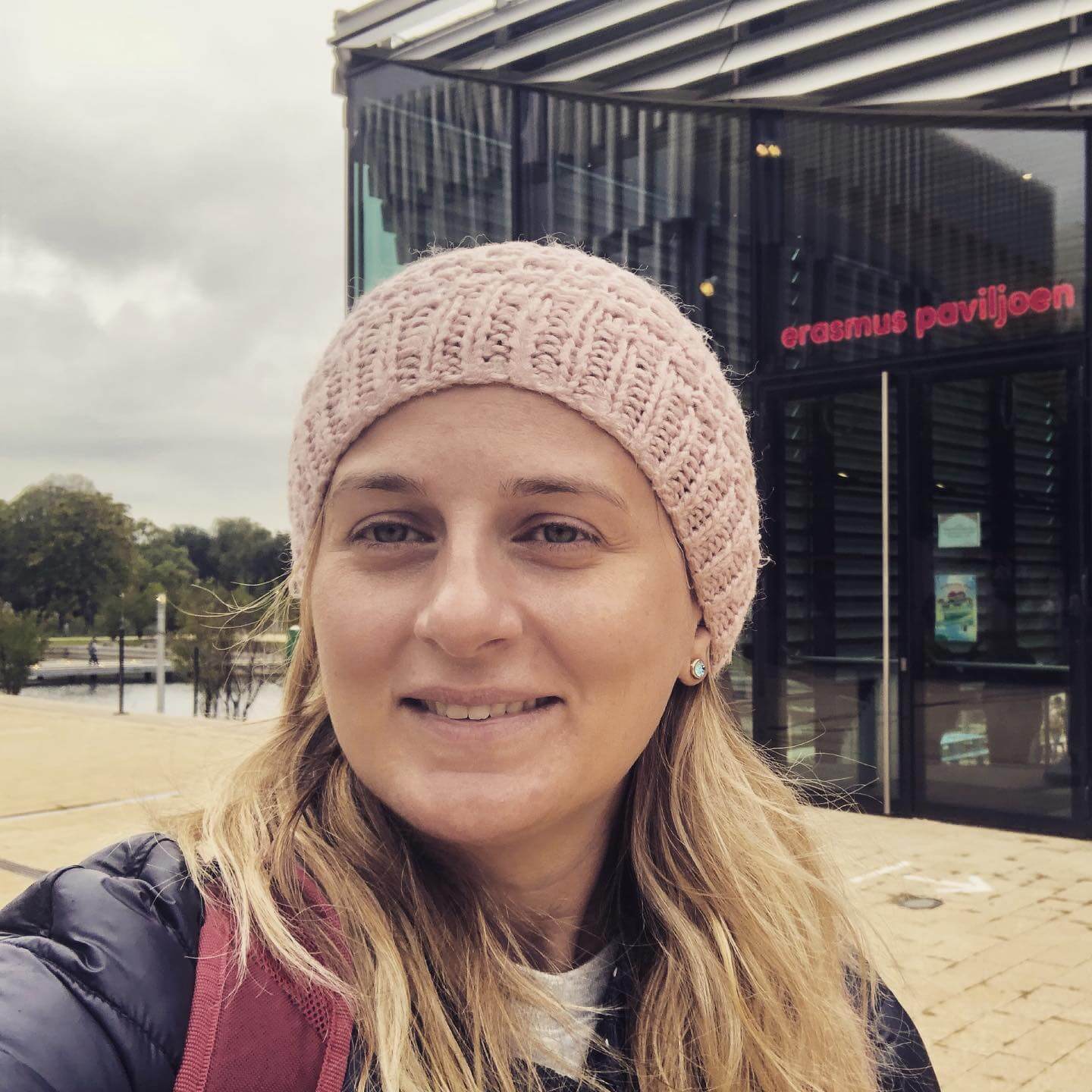
Kikalishvili appreciates and uses the skills learnt during her time abroad in her current lifestyle now. Source: Gvantsa Kikalishvili
What tips do you have for parents who wish to pursue a degree abroad?
I always try to teach my daughter that if she wants to do something or be someone, don’t be afraid. There are no limitations. This year was challenging but also brought new opportunities to me. As a family and as individuals, our dreams are not a barrier to achieve our goals and success in life. I want to be a role model for my 11 year old daughter and teach her to never be afraid of bold decisions.
If you have a dream, go for it and try your best. Studying and living in another country is a life-changing experience. I am grateful for this journey and the knowledge I acquired during my time as an Erasmus student in the Netherlands.
If uni friends visit, where in your hometown in Georgia would you take them to?
The city is old and interesting. For centuries it was a meeting point for Western and Eastern cultures. This cultural mix is what makes it stand out. I would definitely take you to the old part of the city and walk the narrow streets leading to beautiful yards and neighbourhoods. We would stop and eat food at Leile, a vegetarian cafe with a fascinating interior created in the 19th century.
If you want to try traditional Georgian food, we would head to the Gabriadze cafe and eat “Khachapuri” — a local cheese bread — and drink tea with wine. The must-see of the city is the National Museum and the National Gallery, and of course we will visit Fabrika — an alternative art space made in a Soviet factory.








